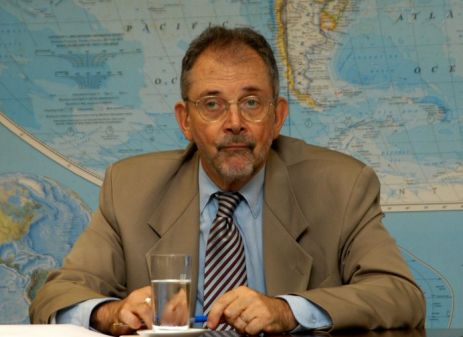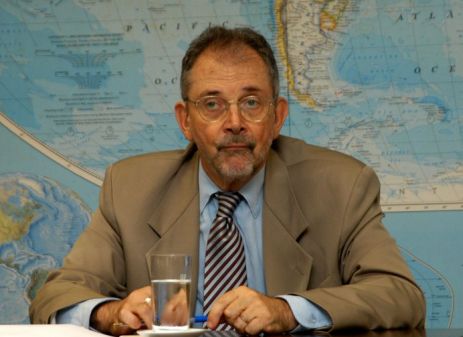 Sergio Barbosa Serra. Photo courtesy Brazilian governmentCOPENHAGEN — I just had a cappuccino with Sergio Barbosa Serra, Brazil’s ambassador of climate change and one of the country’s top delegates at the Copenhagen talks. We discussed what’s going to get hashed out over the next 36 hours of the U.N. climate conference.
Sergio Barbosa Serra. Photo courtesy Brazilian governmentCOPENHAGEN — I just had a cappuccino with Sergio Barbosa Serra, Brazil’s ambassador of climate change and one of the country’s top delegates at the Copenhagen talks. We discussed what’s going to get hashed out over the next 36 hours of the U.N. climate conference.
He boiled the challenge down to this: World leaders will be trying to define and make sense of the “transparency” that the U.S. is demanding of China and other developing nations.
This talk of “transparency” is a departure from the language of “measurable, reportable, and verifiable” (MRV), which has been used at past U.N. climate conferences. China and others are worried that “transparency” could open them up to intrusive scrutiny and unwanted policy prescriptions.
Q. Are you and other leaders from developing nations buoyed by Clinton’s big promise today that the U.S. will pitch in to a fund of $100 billion a year by 2020 to help developing nations mitigate and adapt to climate change?
A. It’s a fair commitment. These are not the figures that would really solve the problem, but it’s a good start. Until now, we only had announcements of probable commitments regarding a few billion dollars. This is more in the line of what we would be expecting in terms of mid-term and long-term financing.
Q. Is China justified in resisting Clinton’s demands for transparency?
A. They have a point. The agreement in Bali [at the 2007 U.N. climate conference] was on MRVs. Now the discussion is about “transparency.”
 It depends on the wording, really. It has to be something that is effective but on the other hand is not seen as too intrusive. It can’t be someone telling you, “Look, you have to change your policy here and there.” Yes, you have to report, and there could be a discussion on numbers. But I don’t think the U.S. would like to see, in the case of its own transparency or its own actions, someone from a foreign country or institution saying, “You shouldn’t be doing this, you should be doing something else.”
It depends on the wording, really. It has to be something that is effective but on the other hand is not seen as too intrusive. It can’t be someone telling you, “Look, you have to change your policy here and there.” Yes, you have to report, and there could be a discussion on numbers. But I don’t think the U.S. would like to see, in the case of its own transparency or its own actions, someone from a foreign country or institution saying, “You shouldn’t be doing this, you should be doing something else.”
We can reach a wording on the question of transparency that could be suitable to everyone. The methods [of transparency] have to be negotiated — [a clear definition] would make everyone more at ease.
Q. Is a weak deal better than no deal?
A. No. You always have expectations for a good agreement. Without a certain degree of commitment, it will undermine the credibility [of these negotiations].
I think we can reach a good agreement even if it’s not complete. You can leave some details and secondary matters to be discussed later, but you have to fix a date for that before the next COP in December.
This is the most important act of global diplomacy in a century, maybe–certainly since global arms control. There is no threat more universally shared than climate change.
Spread the news on what the føck is going on in Copenhagen with friends via email, Facebook, Twitter, or smoke signals.



